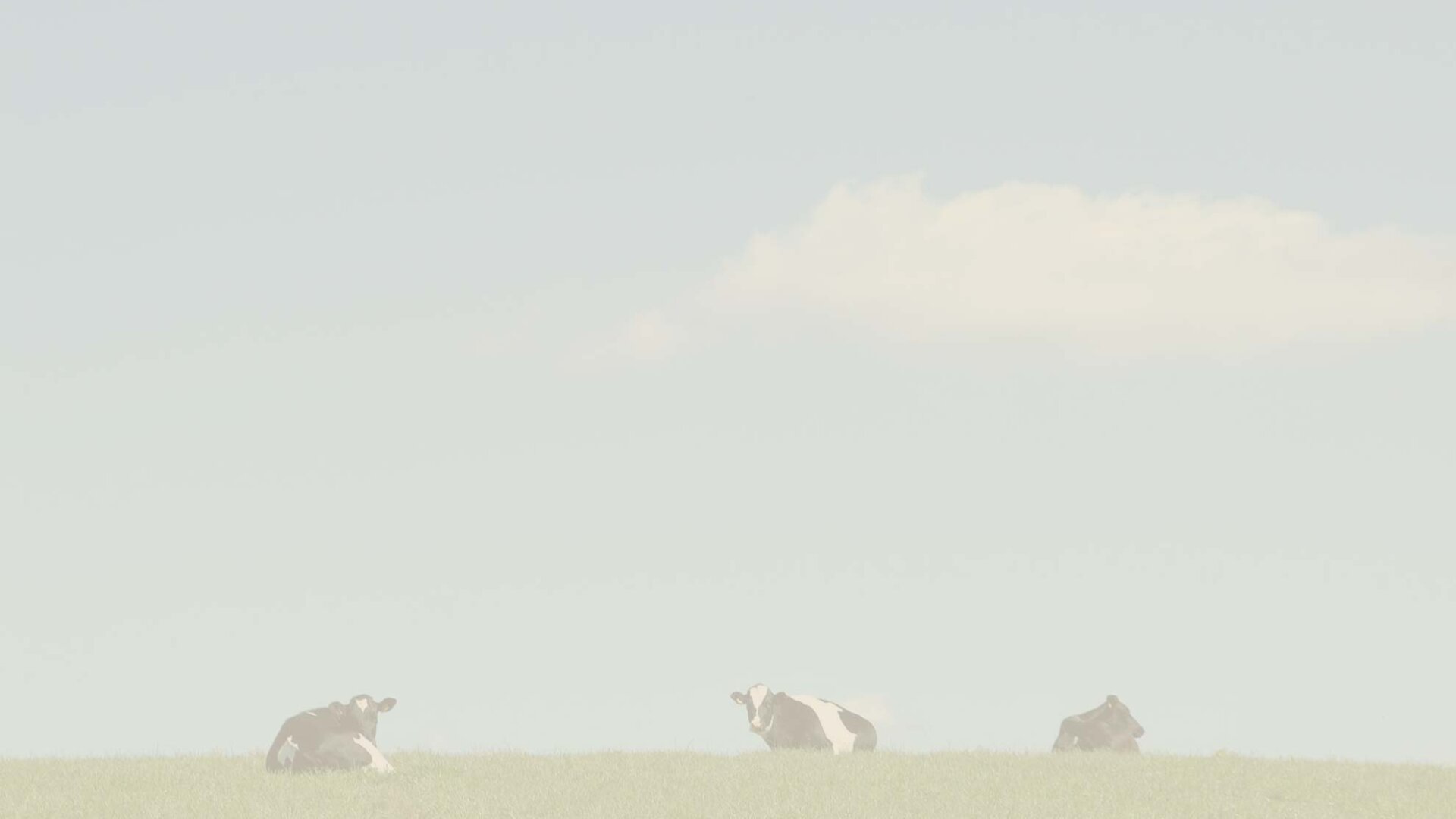Thousands of Cows Kept on Concrete, Denied Even a Walk in the Grass at ‘Clean Energy’ Dairy
Update (January 10, 2025): Following a cease-and-desist letter from PETA, Oakridge Dairy LLC removed multiple false and misleading claims from its website about the welfare of the thousands of cows it keeps constantly confined on concrete. That the mega dairy is “[w]here happy cows make great milk” and that the cows there are provided “plenty of elbow room” and an “optimal living habitat” are just some of the false and deceptive claims that Oakridge has removed from its website following PETA’s letter. Oakridge also took down a video claiming that it “ensures the wellbeing” of the cows and creates a “haven” for them.
Originally published December 17, 2024
Oakridge Dairy, the largest dairy in Connecticut, claimed to be “[w]here happy cows make great milk.” But when PETA eyewitnesses toured the facility, what they found was a typical factory farm—with a grotesque twist. Oakridge perpetually confines thousands of cows on concrete and denies them access to the outdoors—and not just so that humans can steal the milk meant for the calves ripped away from them but also so that their manure can be collected and converted to natural gas. Oakridge partners in this dubious “clean energy” scheme with utility company South Jersey Industries (SJI).
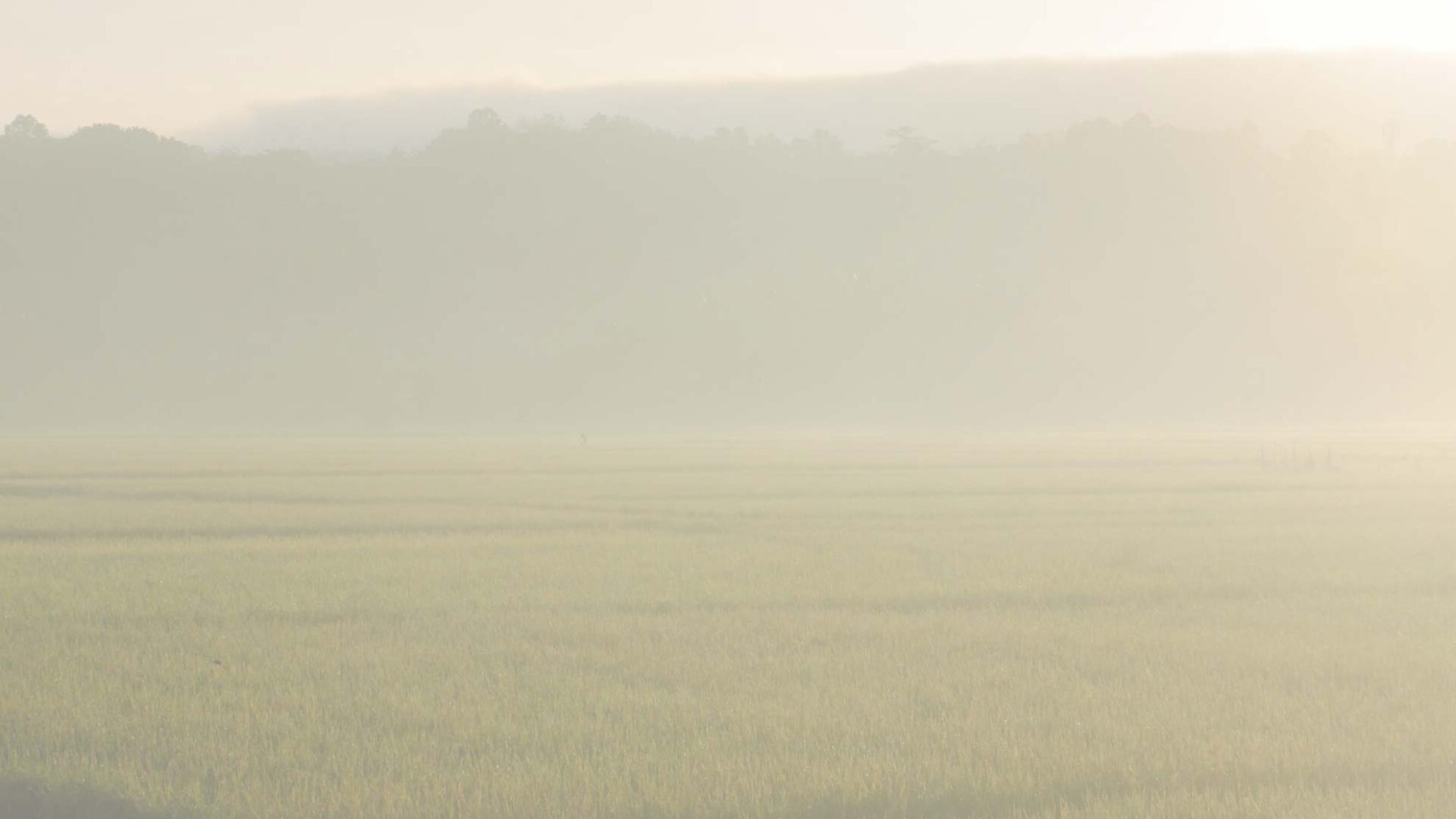
‘Green’ Energy for Humans but No Green Space for Cows
Oakridge refers to itself as “the farm of the future,” but there’s nothing progressive about how it keeps approximately 2,600 cows in a concrete-floored mega shed the size of about six football fields.
Employees admitted that the cows aren’t allowed to go outside because their manure couldn’t be easily collected outdoors. The cows can only gaze out from the sides of the shed at the nearby fields—but never walk on the grass.
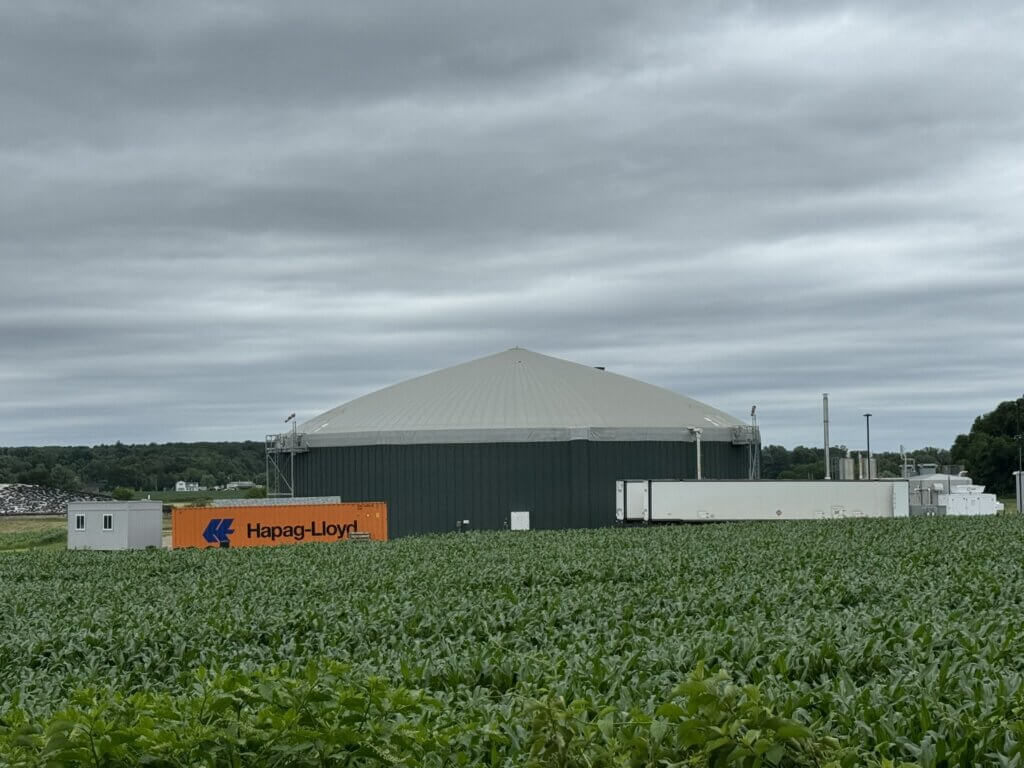
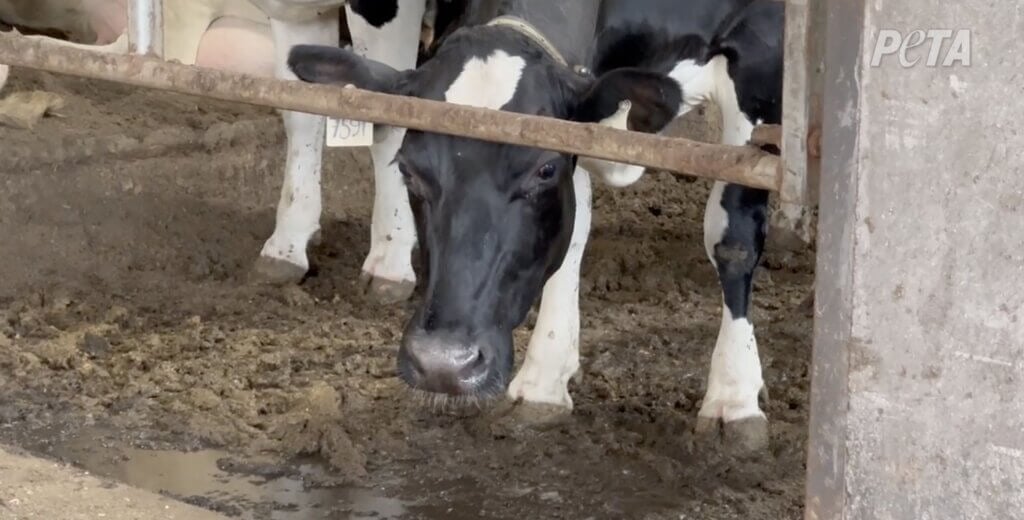
Oakridge claimed to provide the cows with “plenty of elbow room” and “posh living quarters” and claims that its massive shed was designed “to truly raise happy cows.” But Dr. Mary Richardson, a veterinarian who reviewed footage of the dairy, wrote that it instead reveals “very crowded conditions” in which the cows “can’t move around freely and find a comfortable spot to stand or lie down.”
And the only “bedding” given to the cows to rest on? It’s their own dried manure—hardly “posh.”
No Haven or Happy Ending—Just More Humane Washing
Oakridge boasted that it created “a haven” for the cows and ensured their “maximum comfort.” But those who were hooked by the udders to a robotic milking machine—during the only time they were allowed to leave the main concrete pens—had swollen joints and apparent pressure sores on their legs, many of which were covered with feces. At least one cow appeared reluctant to bear weight on her leg, stepping back and forth in evident discomfort.
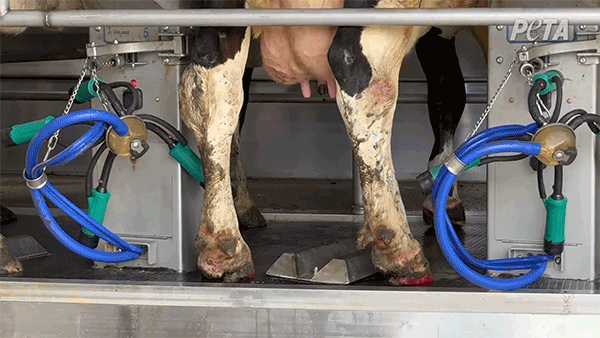
Leg and foot problems in cows can be caused or aggravated by long-term confinement on hard surfaces—just like the concrete floors found in what Oakridge called an “optimal living habitat.”
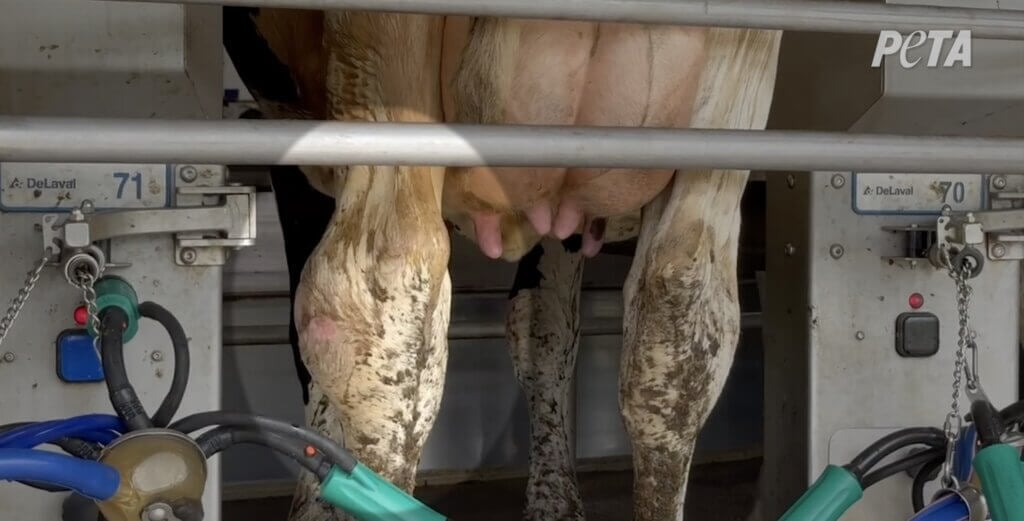
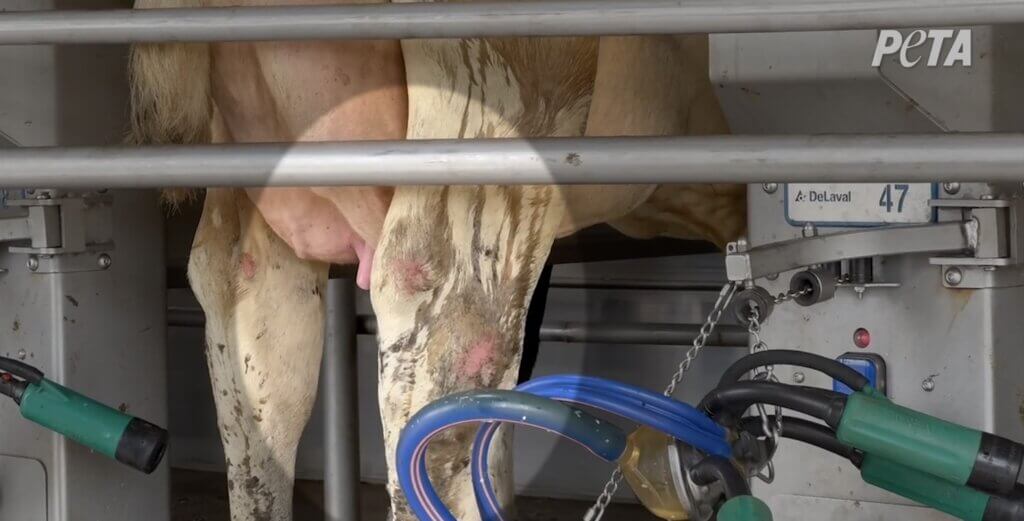
As at any other dairy, the cows exploited for their milk at Oakridge are slaughtered when their bodies wear out from constant pregnancy and lactation and their perceived usefulness wanes. A worker confirmed that the cows were typically killed after about six or seven years. When they’re not exploited on farms, cows can live to be 20 years old.
Babies Torn Away From Mothers Mere Minutes After Birth
Workers separate calves from their mothers shortly after birth—a routine horror found on every dairy factory farm and a cruel “necessity” in order for humans to steal milk that was never meant for them. The mother-calf bond is strong, and cows will cry out, search frantically for their babies, and even chase after the vehicles that take them away.
Oakridge is no different. When an eyewitness asked how much time the calves are allowed with their mothers, a worker said that the dairy separates them within 20 minutes of birth. Dr. Richardson wrote that there is “no doubt” that separating calves from their mothers causes the animals “great stress.” Dr. Kurt Vogel, a cattle welfare specialist, agreed that this separation “has a negative impact on the psychological wellbeing of both.”
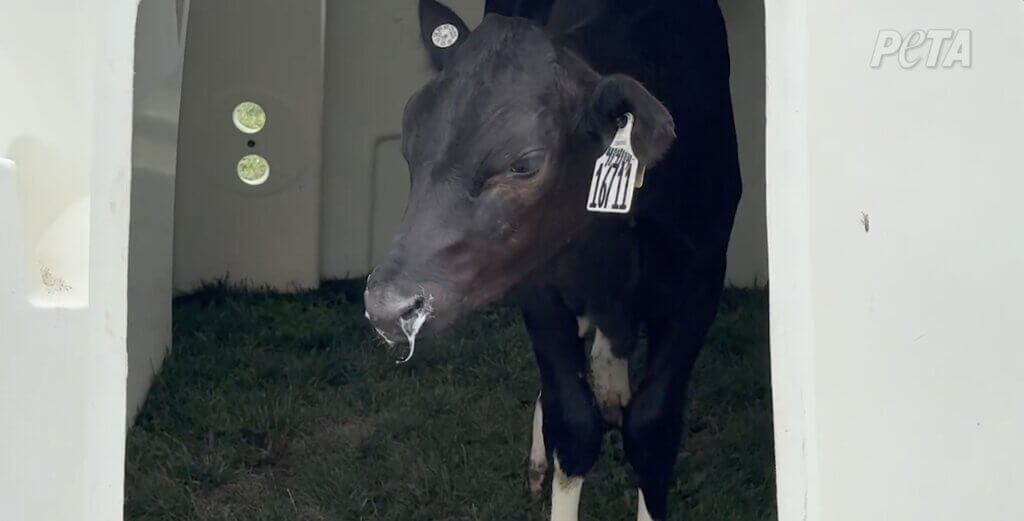
Two calves were put on display for a public tour—subjected to the almost continuous sound of nearby tractor horns being pushed by visiting children—while hundreds of other calves were confined to small plastic hutches and sheds at a nearby Oakridge facility.
A worker explained that the female calves are shipped away when they’re just 5 months old—and returned a year later, once impregnated, for the vicious cycle to begin all over again—while the male calves are sent off to be raised and killed for their flesh.
The Only Truly ‘Green’ Option? Going Vegan
Cows’ milk is never climate-friendly, no matter how Oakridge tries to spin it. Ditching dairy for delicious plant-based milks means fewer cows, which in turn means fewer greenhouse gases entering the atmosphere, fewer nitrates released into the water, and less soil erosion and deforestation.
The 220 pounds of methane that each bovine burps annually can’t be captured in a “digester” like that at Oakridge, and producing cow’s milk still uses about nine times more land and 10 times more water than vegan options such as oat or soy milk.
Going vegan is the best choice for the Earth—and, of course, for cows—rather than continuing to breed and confine animals for their milk, regardless of what is done with their manure.
Please, avoid all animal-derived foods, even supposedly “humane,” “organic,” or “free-range” meat, eggs, or milk. As long as profit is involved, animal welfare and rights always take a back seat.
You Can Help Cows and the Environment
The majority of Oakridge Dairy’s milk is distributed through Dairy Farmers of America, a massive cooperative that supplies many brands, including Garelick Farms in the Northeast. Oakridge also sells milk through The Modern Milkman, a subscription-based home delivery service that uses old-fashioned glass bottles and misleading “happy cow” claims to promote a product that’s anything but a cause for celebration.
If you purchased milk from The Modern Milkman and feel misled by these humane-washing claims, contact PETA.
According to SJI—the utility company that partners with Oakridge to convert the cows’ manure into “clean energy”—there are seven more such projects at mega dairies in Michigan and New York as well as plans for a total of up to 40. This model relies on confining cows indoors.
Please join us below in urging SJI to focus on ventures that don’t require the intensive confinement of cows or any other animals.
You can do so by sending polite comments to:
Michael J. Renna
President and CEO
South Jersey Industries
[email protected]
